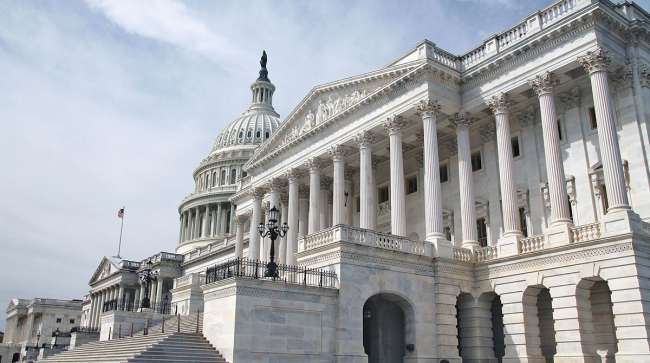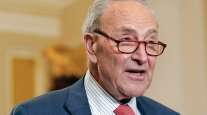Senior Reporter
House Passes FY25 Funding Bill for Veterans, Military

[Stay on top of transportation news: Get TTNews in your inbox.]
The House Republican caucus is pressing for passage of fiscal 2025 funding bills to avert the long-term threat of a shutdown and clear the legislative calendar prior to the November elections.
The chamber on June 5 advanced along party lines a fiscal 2025 appropriations measure specific to military and veterans affairs programs. The bill’s passage by a 209-197 vote is central to the GOP’s aim of passing the dozen annual appropriations bills now on tap before the congressional August recess.
“This bill is special because it takes care of our heroes, both during and after their service. By fully funding veterans’ health care, investing in quality-of-life improvements for military families, and providing robust funding for the Indo-Pacific, this bill fulfills our promise to the men and women who have raised their right hand to defend the nation,” said Rep. John Carter (R-Texas), chairman of the Military Construction, Veterans Affairs and Related Agencies Appropriations Subcommittee.
House Appropriations Committee ranking member Rep. Rosa DeLauro (D-Conn.), who joined nearly every Democrat in opposing the bill, took issue with the partisan outcome on the floor. After the vote, DeLauro said: “I hope Republicans will abandon their partisan strategy, and join Democrats at the table to support veterans, service members, and military families. It is time to govern.”
The House is considering Republicans’ extreme Military Construction & Veterans bill that would hurt our vets & military readiness.
This bill is only part of the safety net vulnerable veterans depend on that Republicans are dismantling. I stand against this misguided bill. pic.twitter.com/QyRayKY4Em — Rosa DeLauro (@rosadelauro) June 4, 2024
On the other side of Capitol Hill, senators have yet to schedule votes on their versions of the fiscal 2025 measures. The senate funding panels have, however, met with high-level Biden administration officials, such as Commerce Secretary Gina Raimondo.
The secretary pressed senators to support the White House’s budget request for her department during a Senate subcommittee hearing prior to the Memorial Day recess. She indicated the funding request would help “identify and assess economic and national security risks to supply chains, as well as develop strategies that the federal government can take to mitigate those risks.”
Want more news? Listen to today's daily briefing above or go here for more info
Senate Appropriations Committee Chairwoman Patty Murray (D-Wash.) on May 15 argued robust funding for the Commerce Department would “help make sure that we have a thriving workforce and growing businesses, strong supply chains, trade relationships, high-speed internet in every ZIP code in America, reliable information about our weather, healthy salmon populations and hatcheries, and of course, cutting-edge research.” Murray anticipates her colleagues will arrive at bipartisan bills prior to the fall funding deadline. To avert a partial shutdown, Congress needs to clear for President Joe Biden’s signature new fiscal year legislation prior to Oct. 1.
Transportation Secretary Pete Buttigieg also has addressed congressional appropriators. He told senators in May, “We still have much more to do. We’re rebuilding not just from the pandemic, but from decades of disinvestment and an enforcement environment that for too long privileged corporations instead of protecting people.”
One of America’s greatest differentiators are the men and women who have selflessly answered the call to serve. They bravely met their duty to us, and, today, I voted to uphold our obligation to them.🇺🇸 https://t.co/ha2WlAa2Ue — Rep. Tom Cole (@TomColeOK04) June 5, 2024
For the U.S. Department of Transportation and its agencies during the upcoming fiscal cycle, the House committee is proposing $90.8 billion for nondefense programs. The funding proposal would include operations at the Department of Housing and Urban Development as well as related agencies. House appropriators intend to report to the floor the DOT bill by mid-July. Committee Chairman Tom Cole (R-Okla.) recently emphasized his caucus’ ability to legislate on measures key to ensuring government operations. As he put it: “We are moving forward on our Article I [constitutional] obligations. In the face of an aggressive schedule and fiscal constraints, we will demonstrate responsible governance and safeguard hard-earned tax dollars.”
The White House is requesting $964.5 million for the Federal Motor Carrier Safety Administration; for the Federal Highway Administration $62.8 billion; for the Federal Transit Administration $16.8 billion; for the Federal Railroad Administration $3.2 billion; and for the National Highway Traffic Safety Administration $1.2 billion.




